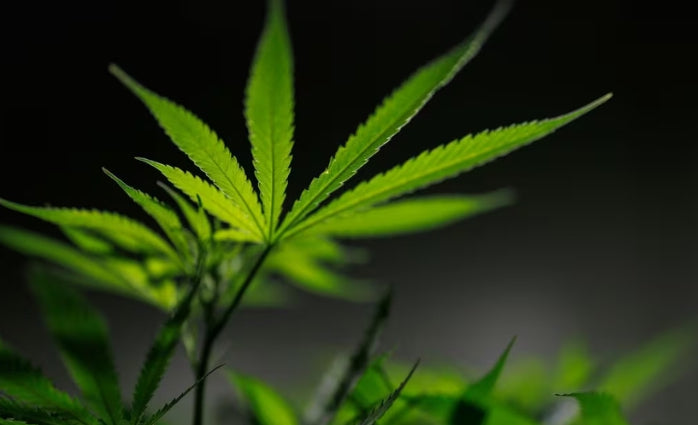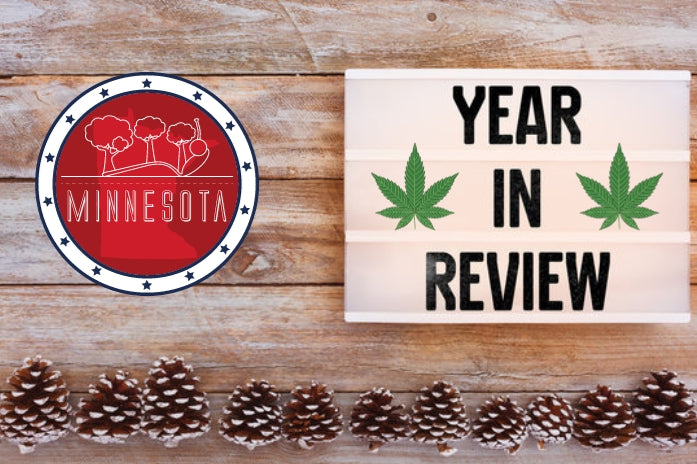Another major storyline dominating headlines in the hemp and cannabis industries dealt with the potential rescheduling of marijuana from a Schedule I to a Schedule III drug on the federal Controlled Substances List.

One of the more surprising developments concerning the politics of cannabis and hemp in 2023 was the announcement from the Department of Health and Human Services (HHS) in late August regarding that agency’s recommendation to the U.S. Drug Enforcement Agency (DEA) to move marijuana from a Schedule I narcotic to a Schedule III class drug on the federal government’s Controlled Substances List.
The Department of Health and Human Services Recommends De-Scheduling Cannabis
As mentioned above, in August, HHS officials formally recommended to the DEA that cannabis be moved from Schedule I to Schedule III under the Controlled Substances Act (CSA). It was a historic move by the agency, signifying a departure from the department’s long-held view of marijuana as a narcotic with high abuse potential and no medical value.
The announcement came following an extensive scientific review of cannabis requested by President Biden last year as part of his decision to grant pardons to all individuals currently serving federal prison sentences for simple marijuana possession convictions. In that request, Biden directed the Secretary of Health and Human Services and the Attorney General to "expeditiously" review marijuana scheduling under federal law.
As a result of its analysis, HHS authorities conveyed to the DEA their belief that the agency should reschedule cannabis to a Schedule III narcotic under the CSA. While the recommendation is not binding, with the DEA having the final word, the overwhelming scientific data combined with growing political momentum for marijuana reform could significantly impact the DEA's final decision.
In a statement released on Wednesday, an HHS spokesperson said, "Following the data and science, HHS has expeditiously responded to President Biden's directive to HHS Secretary Becerra and provided its scheduling recommendation for marijuana to the DEA on August 29, 2023. This administrative process was completed in less than 11 months, reflecting this department's collaboration and leadership to ensure that a comprehensive scientific evaluation be completed and shared expeditiously."
"Following the data and science, HHS has expeditiously responded to President Biden's directive to HHS Secretary Becerra and provided its scheduling recommendation for marijuana to the DEA on August 29, 2023. This administrative process was completed in less than 11 months, reflecting this department's collaboration and leadership to ensure that a comprehensive scientific evaluation be completed and shared expeditiously."
- HHS Spokesperson
Under Schedule III, cannabis would remain federally prohibited. However, the move could have far-reaching repercussions for scientific researchers facing prohibitive barriers because of marijuana's past Schedule I status. Suppose the DEA takes the recommendation and moves marijuana to Schedule III. In that case, researchers will no longer have to navigate the tedious and time-consuming registration process with the agency to gain access to cannabis for studies.
In addition to the expanded research possibilities afforded by the rescheduling, the move would enable cannabis companies to take advantage of tax opportunities and other financial instruments currently unavailable to businesses that sell Schedule I and II drugs.
For example, the rescheduling would allow these companies to make federal business tax deductions currently prohibited by cannabis' Schedule I status. The federal prohibition has saddled the industry with a punitively higher effective tax rate for years.
Proponents of cannabis legalization viewed the move as a massive step in the right direction. And in late September, a new report seemed to indicate that the DEA would most likely go along with the recommendation from HHS and reschedule cannabis for the first time in the history of the CSA.
That study, released on September 13 by the Congressional Research Service (CRS), the federal government's public policy think tank, showed that in a 2020 congressional hearing, DEA officials confirmed that the agency is "bound by law to defer to the U.S. Department of Health and Human Services (HHS) on matters of science and health."
Based on that assessment, it is doubtful that the agency would seek to prohibit this seismic shift in federal drug policy, which could have obvious and significant implications for the American cannabis industry and marijuana users seeking federal jobs or assistance, including public housing and military services.
However, not everyone in the cannabis reform movement is excited about the prospects afforded by a mere scheduling recommendation. One of those wary supporters is Rep. Matt Gaetz (R-FL). Primarily known for his far-right political views and rhetoric, Gaetz is an unexpected yet surprisingly passionate and insightful ally to the fight for legalization.
During a September segment on Newsmax, where Gaetz was filling in for the regular host, the Florida congressman discussed the current cannabis rescheduling recommendation made by the Department of Health and Human Services. Joining him in that discussion was attorney John Morgan, who has spent millions of dollars to get a medical cannabis initiative added to the ballot in Florida.
During the interview, Morgan took the opportunity to criticize the status quo, which currently lists marijuana in the same scheduling category as heroin and meth. He also leveled accusations at Big Pharma and Big Alcohol for attempting to prohibit cannabis research because those studies could potentially back the notion of marijuana as a safer and healthier substitute for their more dangerous drugs.
Gaetz went further, expressing his belief that the government must do more than simply rescheduling. “Well, I totally concur with the assessment that marijuana reform is often blocked by Big Pharma because they want the opportunity to control it. My concern is that if we don’t go any further than moving marijuana from Schedule I to Schedule III, that could potentially allow Big Pharma to control it,” he said.
"Well, I totally concur with the assessment that marijuana reform is often blocked by Big Pharma because they want the opportunity to control it. My concern is that if we don’t go any further than moving marijuana from Schedule I to Schedule III, that could potentially allow Big Pharma to control it.”
- U.S. House Representative Matt Gaetz (R-FL)
Despite their concerns and misgivings, both men ultimately agreed that rescheduling was an overall positive development. However, they remained steadfast in their belief that nothing short of full federal legalization is acceptable to ensure a safe and “uncorrupted” future for the marijuana industry nationwide.
All eyes are now on the DEA and its impending decision to either take or reject the HHS’ recommendation. Politicos and White House insiders strongly believe the agency will align with the Administration and change marijuana's scheduling status. If it does, a host of pro-cannabis political dominos will fall in place nicely for the industry, the most significant being the SAFE Banking Act currently languishing in Senate committee hearing purgatory.
However, it is worth pointing out that Gaetz and Morgan are right about one thing. If Congress and the White House do not continue to push the federal cannabis legalization agenda forward, the dubious and greedy hands of Big Pharma and Big Alcohol could swoop in and sully a promising and much-needed new American industry, creating good jobs and packing a powerful economic punch.






































